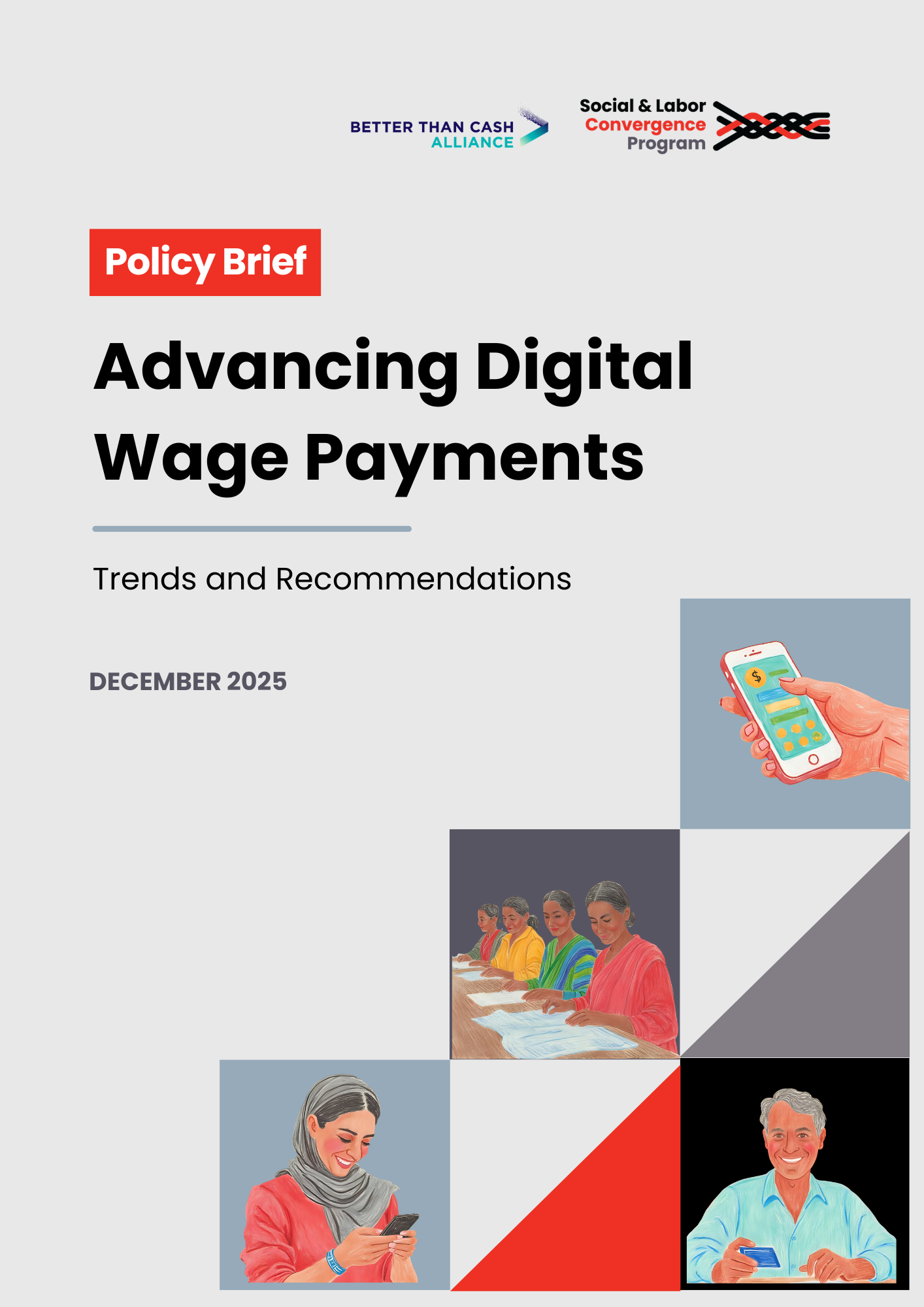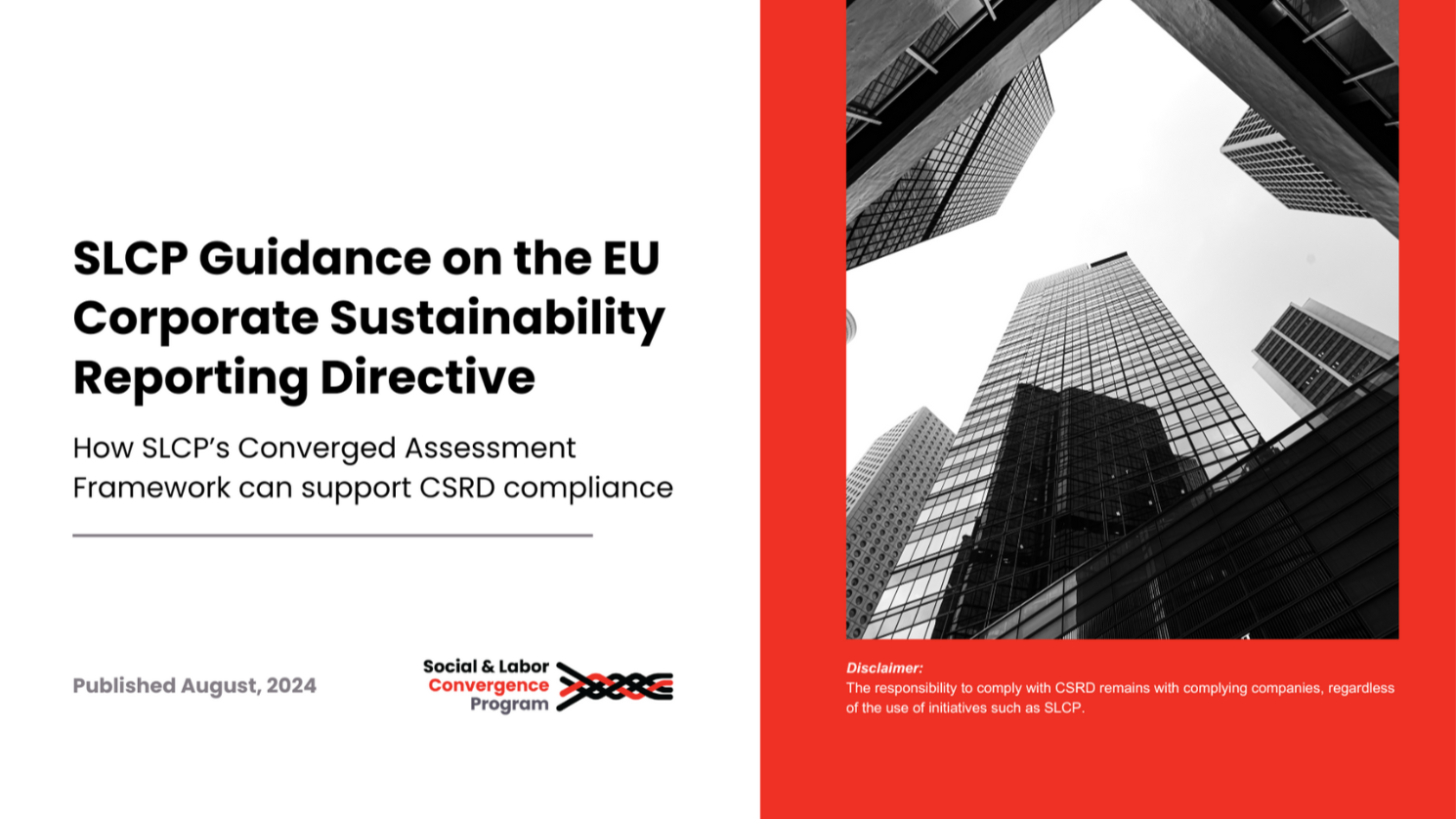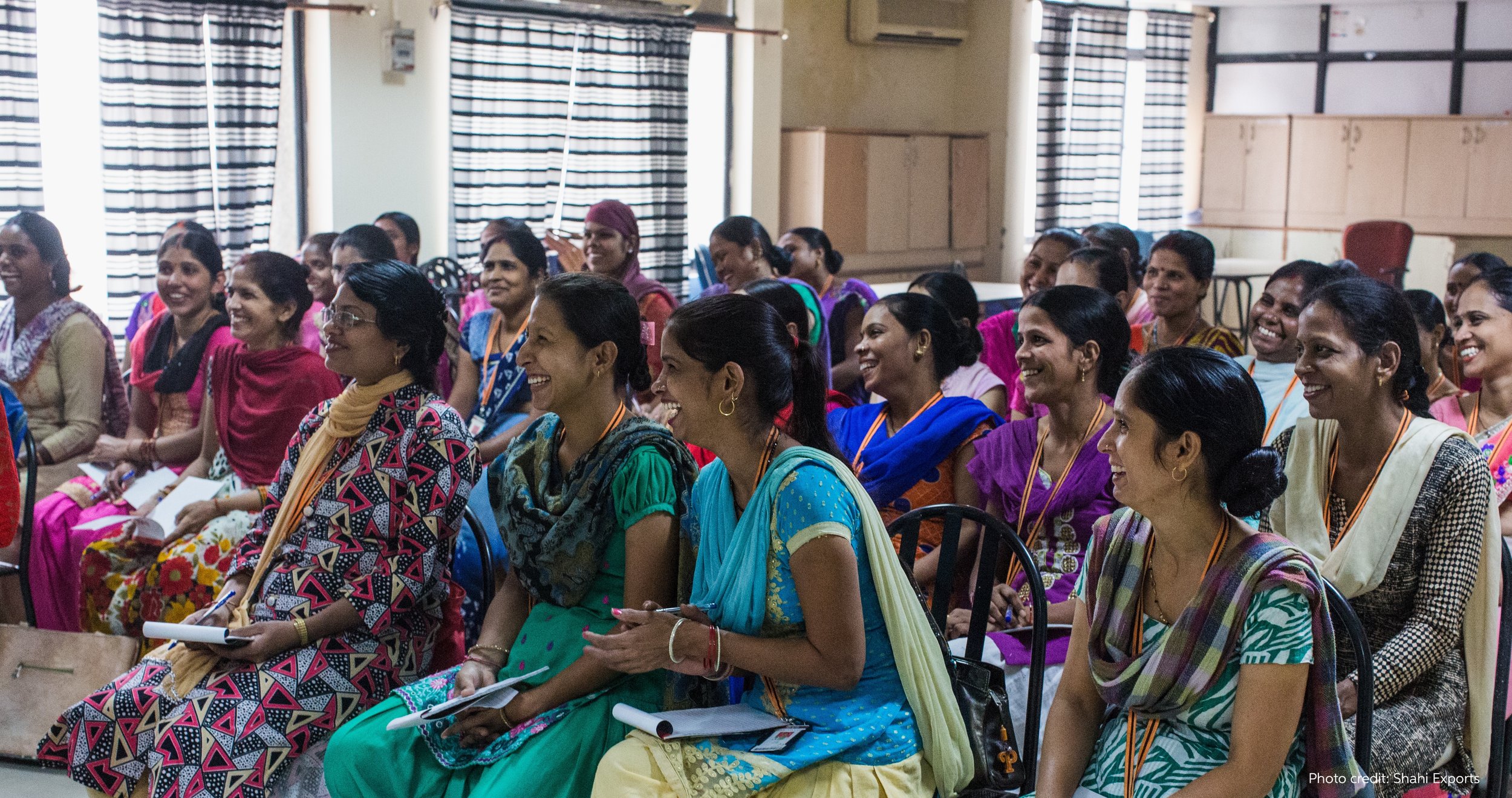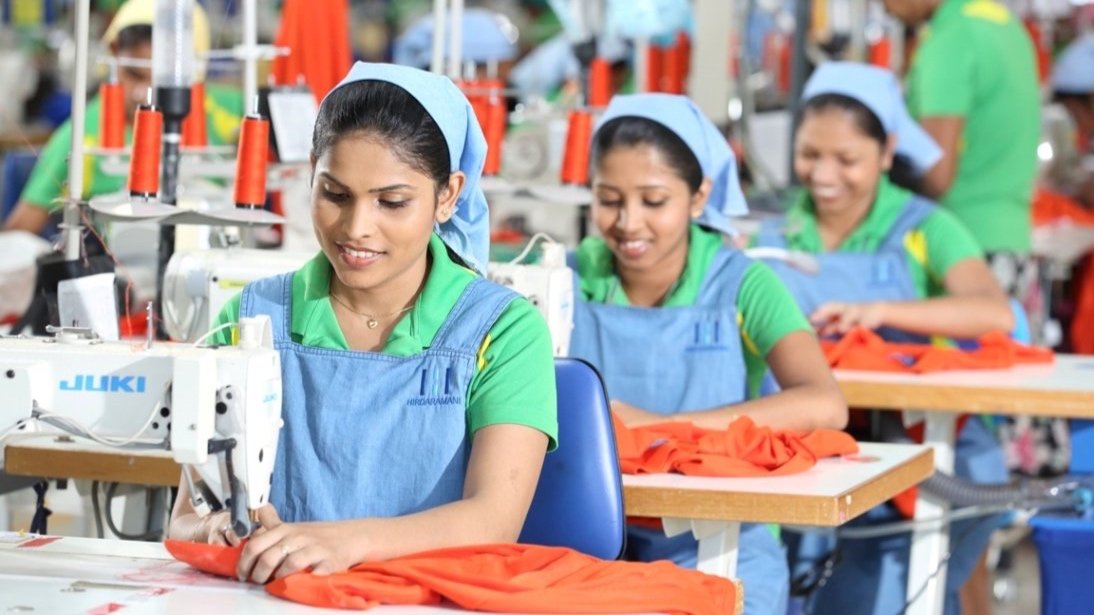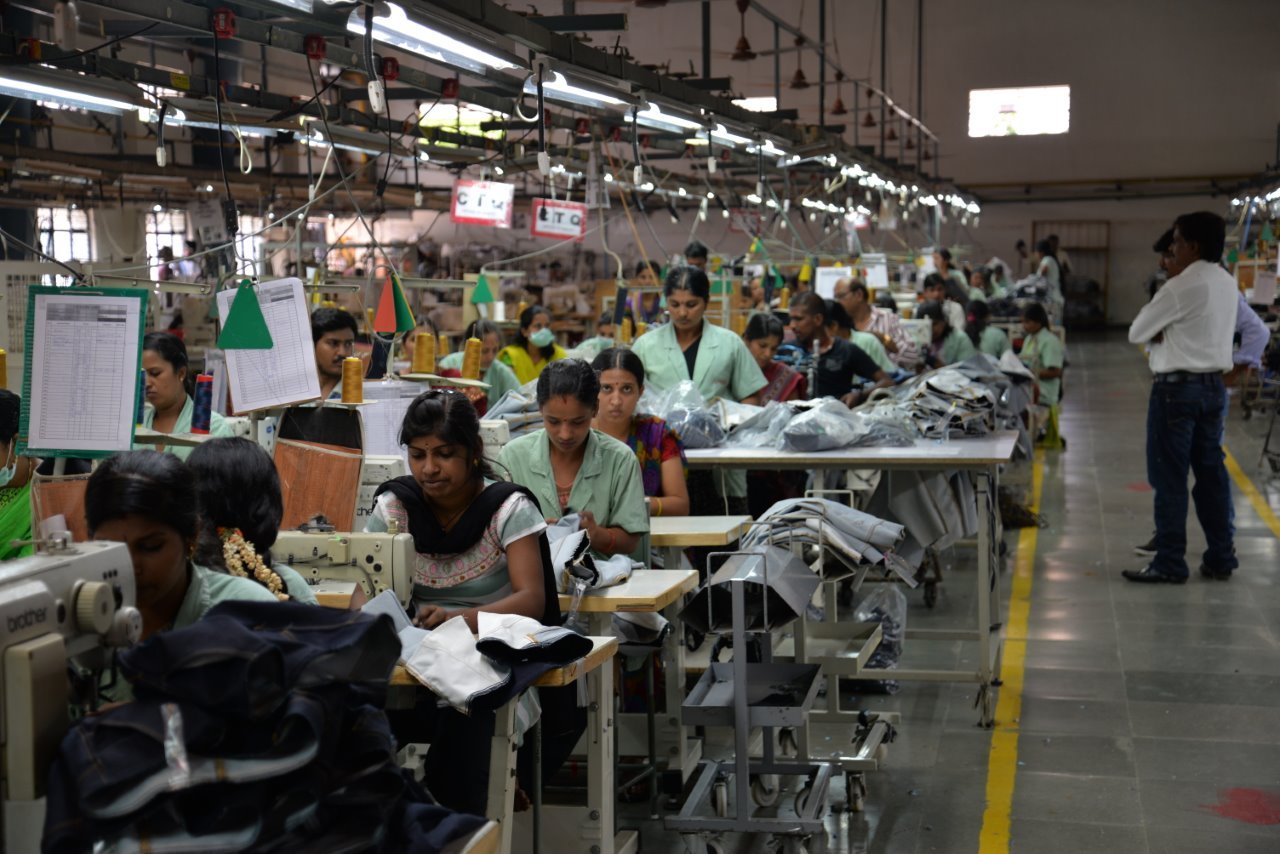
Policy & Advocacy
Subscribe to the SLCP Policy Update to receive updates about SLCP's policy work, including more information on our main priorities and upcoming events
SLCP’s Policy priorities focus on engaging with industry and policymakers to strengthen responsible business practices, and on knowledge sharing to demonstrate SLCP’s value for policy implementation. This page highlights SLCP’s work in these areas and provides helpful resources.
Featured Publications
Identifying Severe Human Rights Issues - The role of SLCP’s Converged Assessment Framework
This new guide explores how the Converged Assessment Framework (CAF) helps stakeholders identify valuable indicators of severe human rights issues, particularly those linked to the ILO Core Labor Standards. When following a risk-based Human Rights Due Diligence (HRDD) approach, severity is a critical factor for risk prioritization.
Policy Brief: Advancing Digital Wage Payments
Better Than Cash Alliance and SLCP published a joint policy brief demonstrating compelling evidence of a link between digital wage systems and better social compliance. The brief also offers recommendations for policy-makers, brands, manufacturers and industry associations.
Guidance Documents
SLCP Human Rights Due Diligence Toolkit 2.0
The HRDD Toolkit is designed to help companies understand how SLCP assessments can support them in implementing mandatory HRDD and respecting human rights in their supply chains.
The Toolkit covers SLCP's value-add in implementing the OECD Due Diligence Guidance for Garment & Footwear, the draft European Corporate Sustainability Due Diligence Directive, the German Supply Chain Due Diligence Act, and the Uyghur Forced Labor Prevention Act (UFLPA).
Handbook for Due Diligence Implementation in the Textile Sector
Four organisations - Policy Hub, the Social and Labor Convergence Program, Fair Wear Foundation, and amfori - have joined forces to present a comprehensive Handbook for Due Diligence Implementation in the Textile Sector.
The Handbook is intended to support the European Commission in formulating comprehensive guidelines for the textile sector and beyond, as required by the Directive on Corporate Sustainability Due Diligence (CSDDD) which came into effect on 5 July 2024.
SLCP Guidance on the EU Corporate Sustainability Reporting Directive (CSRD)
The Guidance document demonstrates which aspects of CSRD compliance SLCP’s Converged Assessment Framework (CAF) can support with, and which are out of SLCP’s scope.
The Guidance serves not only as a resource for brands seeking solutions in preparing to meet reporting obligations, but also for other stakeholders, including manufacturers, grappling with the complexities of the CSRD.
Public Consultations & Positions
-
As part of the UK Government’s review of its approach to responsible business conduct, SLCP shared its insights to help strengthen the UK’s legal framework, advocating for alignment with international best practice, including by establishing mandatory HRDD obligations for UK and non-UK companies operating in this market.
-
SLCP shares our positioning on the Omnibus proposal, reaffirming that simplification of compliance requirements should not just be about efficiency. Rather, it should be about keeping legislation in line with original objectives and avoiding implementation delays. The proposed changes in the Omnibus proposal are deeply concerning to SLCP, and risk leading to further market fragmentation and ongoing legal uncertainty for supply chain actors.
-
SLCP and partner organizations released two joint statements ahead of the EU negotiations on the EU Omnibus proposal. Drawing on their extensive experience in responsible supply chain practices, these organizations call on EU policymakers to ensure that efforts to simplify the EU sustainability due diligence and reporting framework preserve the alignment with international standards.
-
SLCP welcomes the Ministry of Foreign Affairs of the Netherlands initiative to advance human rights standards in global supply chains through the introduction of mandatory human rights due diligence legislation, by transposing the Corporate Sustainability Due Diligence Directive (CSDDD).
-
SLCP’s Submission to the OECD Working Party on Responsible Business Conduct. This Letter is in response to the OECD’s draft Recommendation on the Role of Governments in facilitating Responsible Business Conduct (RBC). We highlight our overall support for the recommendation, while outlining four ways it could be strengthened to ensure states address and advance RBC practices.
Academic and Research Papers
Opportunities & challenges in EU due diligence policy implementation for the textile sector
This research outlines the critical role of the Corporate Sustainability Due Diligence Directive in shaping responsible business conduct and ensuring a more transparent, sustainable, and accountable textile industry.
ITC publication: Navigating the Regulatory Landscape: Audit fatigue in the garment and textile industry
This research paper explores how facility ownership of their social and labor assessment data can support facilities to improve their practices, save valuable resources, and comply with emerging regulatory requirements such as Human Rights Due Diligence.



